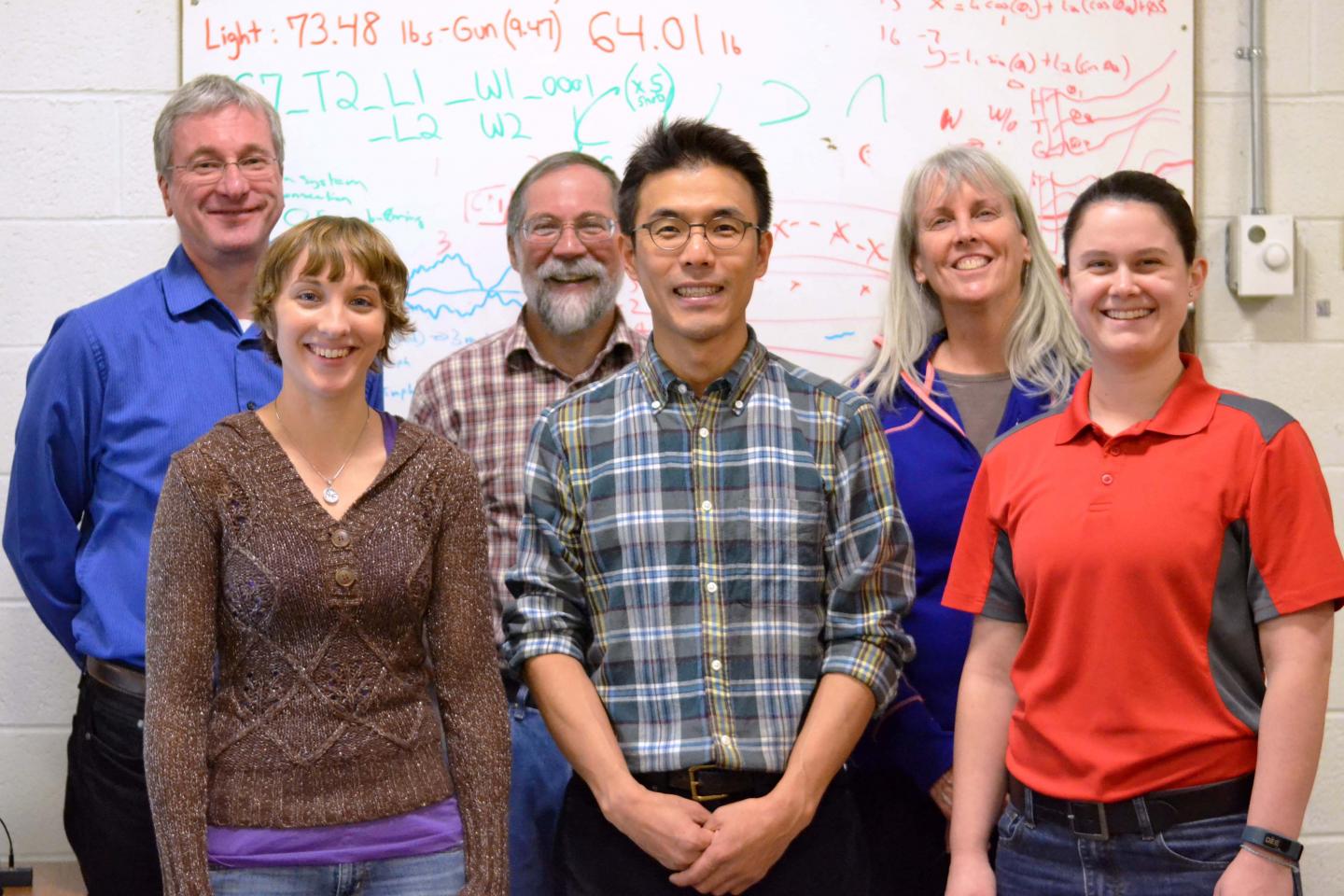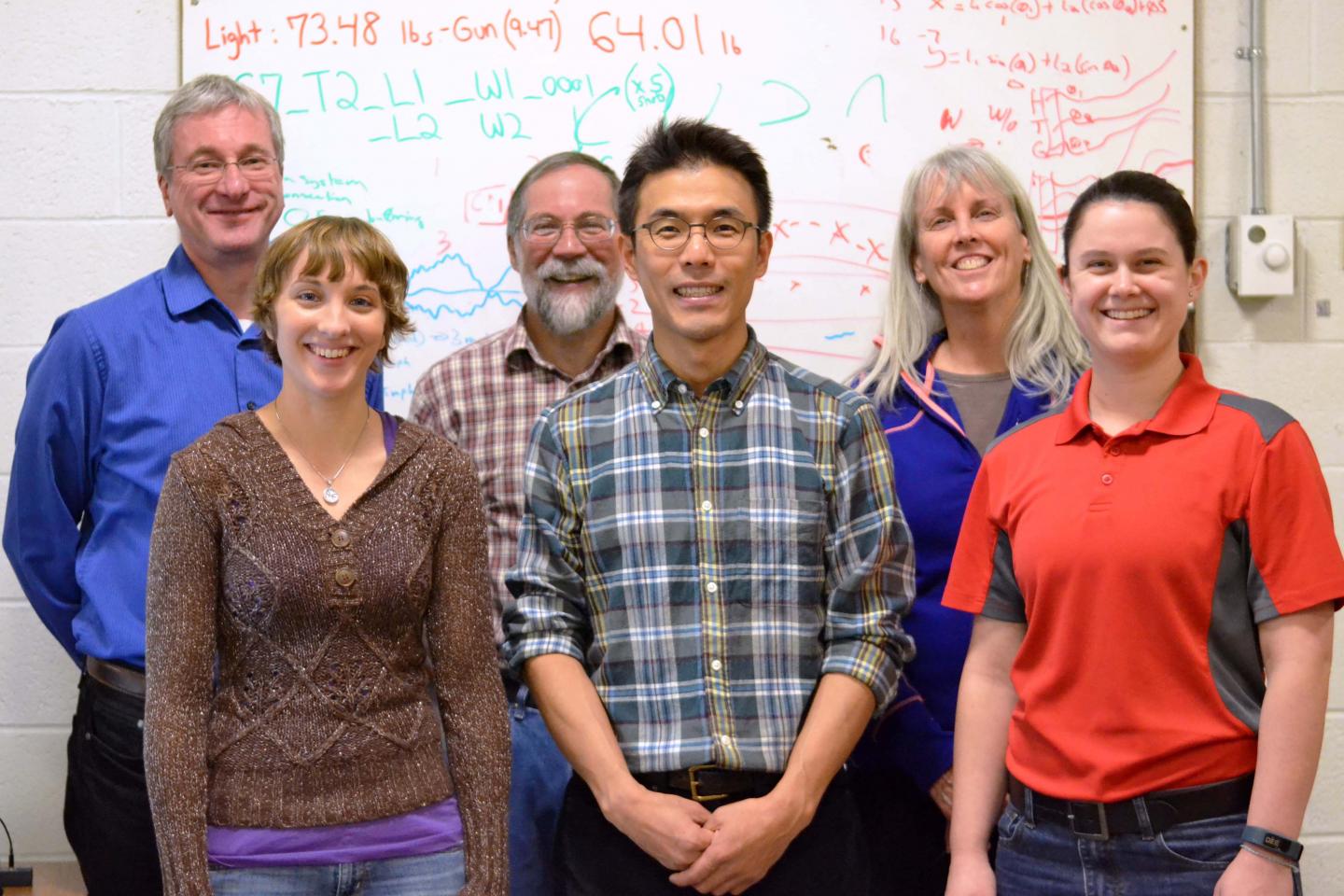
Credit: UMass Amherst
AMHERST, MASS. – With a recent two-year, $833,000 grant from the U.S. Department of Defense, kinesiology professor Richard van Emmerik and colleagues at the University of Massachusetts Amherst hope to eventually help an estimated 1 million people worldwide living with progressive multiple sclerosis (MS) by creating an improved diagnostic test for this form of the disease, which is characterized by a steady decrease in nervous system function.
Van Emmerik says, "The goal of our test is to accurately track the progression of symptoms in patients and clearly diagnose them with either progressive or non-progressive MS." Despite the fact that almost half of individuals with MS at present exhibit a progressive or steadily declining disease course, effective methods to treat and provide a timely diagnosis have been elusive, he adds. His current project's aim is to develop an accurate and sensitive test that can detect subtle changes in sensory and motor function.
The project holds promise for having an immediate impact on the way patients with progressive MS are treated, the kinesiologist notes. With results of this work in hand relatively soon, as early as two years, he expects clinicians and researchers will soon be able to begin using these new methods.
The two-part project will begin with researchers developing new standardized measures for symptoms of progressive MS such as patients' ability to feel sensations on their feet, their capacity to sense movement and joint position in the lower body, capacity to coordinate limb movement and overall ability to walk unaided. In part two, the researchers will track participants' progress over two years using the new measures.
The research team is an alliance between the departments of kinesiology in the UMass Amherst School of Public Health and Health Sciences and clinical neurology at the UMass Medical School. UMass Amherst team members are professors Jane Kent and Richard van Emmerik, postdoctoral researcher Jongil Lim and graduate research assistants Julianna Averill and Julia Miehm. Carolina Ionete and Carolyn Griffin are from the medical school; consultants John Buonaccorsi and Stephanie Jones also work with the team.
Van Emmerik explains, "We want to understand how sensation and motor function change in those with progressive MS by repeating these measurements every six months. The ultimate goal is to develop a process that will detect small changes in patients so clinicians and researchers can develop effective, early treatments to slow disability progression in those with MS and maintain or improve their quality of life."
###
Media Contact
Janet Lathrop
[email protected]
413-545-0444
@umassscience
http://www.umass.edu





